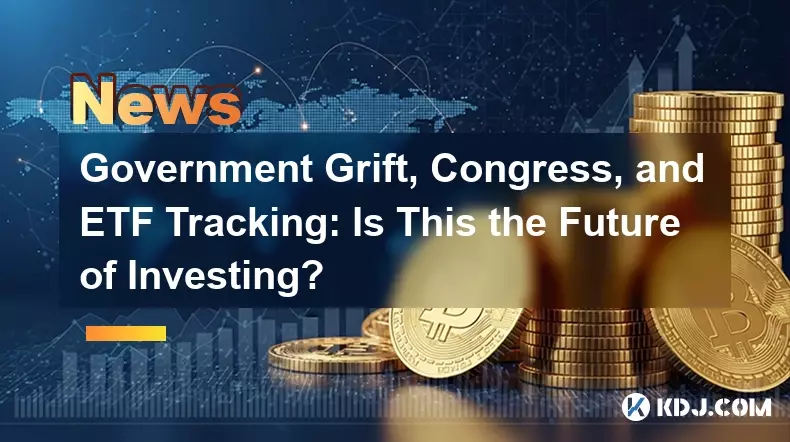Dive into the world of government grift, congressional trading, and the ETFs that track it all. Is this a legitimate investment strategy or just another way to profit off political connections?

Government Grift, Congress, and ETF Tracking: Is This the Future of Investing?
So, what's the deal with government grift, Congress, and ETFs that track all the juicy details? It's a wild ride where Wall Street meets Washington, and frankly, it’s a little bit of a head-scratcher.
The Rise of the Government Grift ETF
Imagine an ETF that follows the trading activity of politicians, their spouses, and companies cozy with the President. Sounds like a plot from a political thriller, right? Well, Tuttle Capital Management is making it a reality with the Tuttle Capital Government Grift ETF (GRFT). The SEC gave the green light, setting October 3rd as the date for liftoff. The ETF scans STOCK Act transaction reports to see what members of Congress are buying and selling. They also look at companies with ties to presidential influence, like those with execs connected to the White House or businesses getting shout-outs from the President.
GRFT will track between 10 and 30 stocks and ETFs, sizing positions based on congressional trading volume and perceived presidential influence. Tuttle believes that political actors can move markets or have inside info that affects security prices. It’s like they’re saying, “Let’s make some money off these insiders!”
Crypto's Unexpected Cameo
Here's where it gets even more interesting. Crypto might sneak into this ETF. Think about it: Trump has connections to Trump Media & Technology Group (DJT), which holds a boatload of Bitcoin. Plus, there are those Trump-related memecoins floating around. Tuttle already has leveraged crypto ETPs for cryptos like XRP, Solana, Litecoin and Chainlink.
The Bigger Picture: Crypto Regulation and Clarity
While we're talking finance and Washington, let's not forget about crypto regulation. Ripple's Chief Legal Officer, Stuart Alderoty, is pushing for clear U.S. crypto rules. He argues that the SEC finally sees crypto clarity as a priority, which is a big deal. According to the National Cryptocurrency Association, one in five U.S. adults owns crypto. People want reliable and safe ways to invest in and use crypto. Americans transacted over $1 trillion in digital assets this year alone.
Alderoty warns that without clear rules, crypto activity will just move elsewhere. Clarity would protect consumers and give firms the certainty they need to build in the U.S. Congress is weighing market-structure legislation, so now’s the time to act. Alderoty wants lawmakers to “prove to Americans that Washington can, in fact, deliver clarity where it’s needed most.”
Is This Ethical? A Few Thoughts
Okay, let's be real. An ETF tracking politicians' trades? It raises some eyebrows. On one hand, it's a way to potentially profit from insider knowledge. On the other hand, it feels a bit like we're normalizing the idea of politicians using their positions for personal gain. But hey, maybe it'll also make them think twice before making questionable trades. Or not. Who knows?
The Bottom Line
So, there you have it. Government grift, Congress, and ETFs – a wild mix of finance, politics, and maybe a little bit of absurdity. Whether it's a brilliant investment strategy or a sign of the times, it's definitely something to keep an eye on. And who knows, maybe one day we'll all be investing in ETFs that track the Kardashians. The future is weird, y'all.














































































